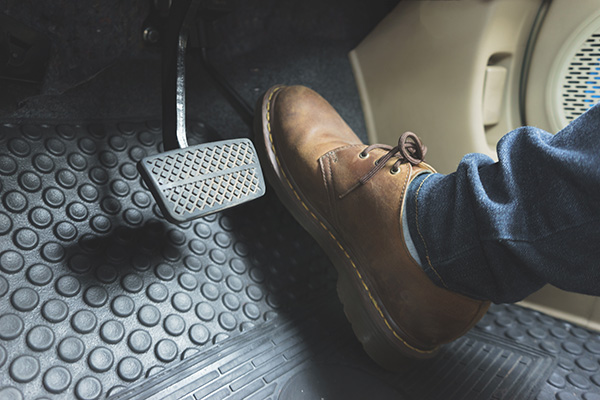
A smooth response when you press the gas pedal is something most drivers take for granted. But when your car hesitates or stumbles instead of accelerating, it’s a signal that something isn’t functioning properly in your engine or drivetrain. This hesitation can feel like a brief delay, a sputter, or even a jerking motion, and it’s usually most noticeable when starting from a stop or merging into traffic.
If this is happening in your vehicle, it’s important to identify the cause quickly. A hesitation to accelerate can result from several different mechanical or electrical issues, and catching the problem early can prevent costly repairs down the line.
Problems with the Fuel System
A frequent reason for hesitation is an issue within the fuel delivery system. Your engine depends on a precise mixture of air and fuel to run smoothly. If the fuel system isn’t delivering the right amount at the right time, hesitation can occur.
Dirty fuel injectors, a clogged fuel filter, or a failing fuel pump can all restrict the flow of gasoline to your engine. This can cause the engine to run lean, meaning there’s more air than fuel, which affects power and acceleration. Hesitation may also be worse when accelerating quickly or driving uphill, as more fuel is required during these times.
Ignition System Issues
Spark plugs and ignition coils are responsible for igniting the fuel-air mixture in your engine. If a spark plug is worn or fouled, it can delay combustion and cause the engine to hesitate. Ignition coils can degrade over time or malfunction due to heat or moisture, especially in humid or coastal environments like Sarasota.
Even a single faulty spark plug can make your car feel sluggish. Replacing spark plugs at the recommended intervals and inspecting ignition components regularly helps maintain smooth acceleration.
Air Intake Problems and Sensor Failures
Just like fuel, your engine needs the correct amount of air to perform properly. If the airflow is disrupted, your engine may not know how to adjust. A dirty or failing mass airflow sensor (MAF) can send inaccurate data to the engine control unit, leading to poor throttle response. Similarly, a clogged air filter can reduce airflow and affect performance.
Modern engines rely on multiple sensors to measure air intake, throttle position, and oxygen levels. When any of these sensors start to malfunction, hesitation and rough acceleration are often the first symptoms.
Throttle Body Issues
The throttle body controls how much air enters the engine when you press the accelerator. If it becomes dirty or carbon buildup collects on its internal components, the airflow can be restricted, causing hesitation or jerking when you try to accelerate. Cleaning the throttle body is a relatively simple fix that can restore normal function.
Electronic throttle bodies can also develop software or electrical faults that result in laggy or delayed response, which may require recalibration or replacement.
Transmission and Drivetrain Problems
Although hesitation is often caused by fuel or ignition issues, the problem can also lie within the transmission or drivetrain. If your automatic transmission is slipping, hesitating between gear changes, or not shifting properly, it can feel like the engine is lagging behind your foot on the gas pedal.
Low transmission fluid, worn clutch components (in manual vehicles), or a malfunctioning transmission control module can all interfere with smooth acceleration. Any transmission-related hesitation should be checked promptly to avoid further damage.
Vacuum Leaks and Engine Timing
Modern engines use vacuum pressure to operate various components, including sensors and actuators. A leak in one of the vacuum lines can disrupt the engine’s air-fuel mixture and create hesitation. These leaks are often difficult to detect visually and may require specialized diagnostic tools to identify them.
Likewise, engine timing plays a critical role in ensuring everything fires at the right moment. If the timing belt or chain has skipped a tooth or isn’t synchronized properly, the result can be a sluggish engine or rough idle.
What You Should Do If Your Car Hesitates
While a single episode of hesitation might not be cause for alarm, consistent problems indicate an underlying issue that shouldn’t be ignored. The first step is a professional diagnostic to read error codes and test the major systems responsible for acceleration. Often, a relatively minor issue left unresolved can lead to increased wear and fuel consumption or even complete component failure.
Get Back to Smooth Driving with Kaufman's Auto Repairs in Sarasota, FL
Hesitation when accelerating can be frustrating and even dangerous in the wrong situation. Whether it’s an ignition misfire, a fuel system issue, or something more severe in the drivetrain, resolving it promptly is crucial to maintaining your vehicle's reliability.
If your car isn’t responding the way it should when you press the gas pedal, visit Kaufman's Auto Repairs in Sarasota, FL. Our skilled technicians will diagnose the issue and restore your vehicle’s performance, allowing you to drive with confidence again.